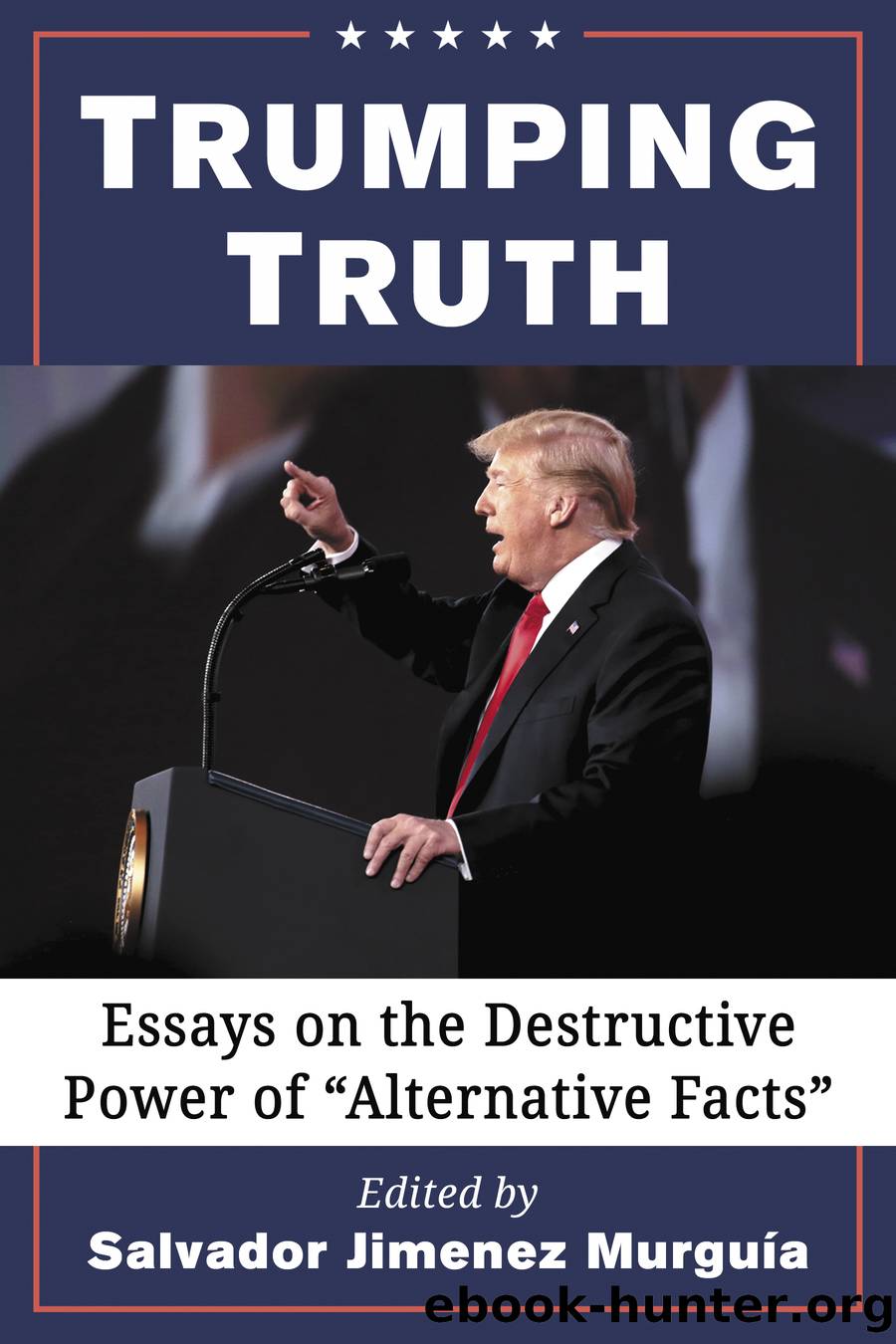Trumping Truth by Salvador Jiménez Murguía

Author:Salvador Jiménez Murguía
Language: eng
Format: epub
Publisher: McFarland & Company, Inc., Publishers
Published: 2019-07-02T00:00:00+00:00
What Is a Politician?
Christopher W. Thurley
What is a politician? The word âpoliticsâ comes from the Greek word âpolitikaâ meaning affairs of the state, which, over time, evolved into âpolettiquesâ in Latin which, by definition, added the significance of governance into the practicing of these affairs. In the 21st century, what are the requirements of being a politician? To read laws, give opinions, collect signatures? Call constituents and ask for money? This all seems too simple when stripped down to the rudimentsâthese are tasks any competent college student could accomplish over a summer internship. So where is the learning, the growth? Where is the research, the struggle, the doubt, humiliation, and reflection, the criticism and constant self-evaluation that is demanded by a full, complete, and effective education? The embracing of different views is stressed in education where introspection is key to growth, but this may not be so in politics. Is a politician not just a representative edifice of a body of beliefs carried by their supporters? If so, then what a dangerous constructionâa Frankensteinâs creature assembled by the fragmented and, likely, ignorant views represented in the vox populiâan assemblage created out of boredom, a bricolage of various beliefs sewn into the anatomical likeness of a human that revels in its newfound consciousness, its praise of being lifted from the table, but ultimately, not human, not even necessarily natural (although made of natural constituent elements). These anthropomorphs lack an essential individual conscious, because it has been outsourced, since they tend to exist as a creation for the purposes of a specific party which ascribes these individuals with a set or criteria including limitations of character and thought. It is because of this necessity to adhere to Party law that these anthropomorphs do not normally, although they shouldâand I speak of politicians hereâtake their role to be necessarily growth-oriented. Instead, those in these roles act as megaphones for those they wish to excite, incite, emotionalize, and mobilize because a democracy demands a majority, so the goal must always be more. The goal is never truth, knowledge, or instruction, and if it is, politicians that use these tactics will likely not be politicians for very long. With party politics truth often becomes relative, or, to put it another way, it becomes lies, and the keen observer âknows that such lies rarely spring from genuine cynicism or contempt of the mob [because] a politician is wholly devoted to his party, and he has to find ways of making the worse cause seem the better. He does not want to lie, but he has to. He can evade bare-faced falsehood by gobbledygook or euphemism, by ambiguity or redefinition.â1 This is how the word democracy, as George Orwell noticed, becomes used admiringly and without hesitation for any side of a political debate, but, more accurately, should instead be understood in conjunction with acts of demagoguery since âthe defenders of every kind of regime claim that it is a democracy, and fear that they might have to stop using the word if it were tied down to any one meaning.
Download
This site does not store any files on its server. We only index and link to content provided by other sites. Please contact the content providers to delete copyright contents if any and email us, we'll remove relevant links or contents immediately.
The Secret History by Donna Tartt(16675)
The Social Justice Warrior Handbook by Lisa De Pasquale(11495)
Thirteen Reasons Why by Jay Asher(7808)
This Is How You Lose Her by Junot Diaz(5802)
Weapons of Math Destruction by Cathy O'Neil(5055)
Zero to One by Peter Thiel(4840)
The Myth of the Strong Leader by Archie Brown(4796)
Promise Me, Dad by Joe Biden(4460)
Beartown by Fredrik Backman(4442)
How Democracies Die by Steven Levitsky & Daniel Ziblatt(4427)
Stone's Rules by Roger Stone(4426)
The Fire Next Time by James Baldwin(4354)
100 Deadly Skills by Clint Emerson(4091)
A Higher Loyalty: Truth, Lies, and Leadership by James Comey(4044)
Rise and Kill First by Ronen Bergman(4026)
The David Icke Guide to the Global Conspiracy (and how to end it) by David Icke(3899)
The Farm by Tom Rob Smith(3883)
Secrecy World by Jake Bernstein(3793)
The Doomsday Machine by Daniel Ellsberg(3742)
